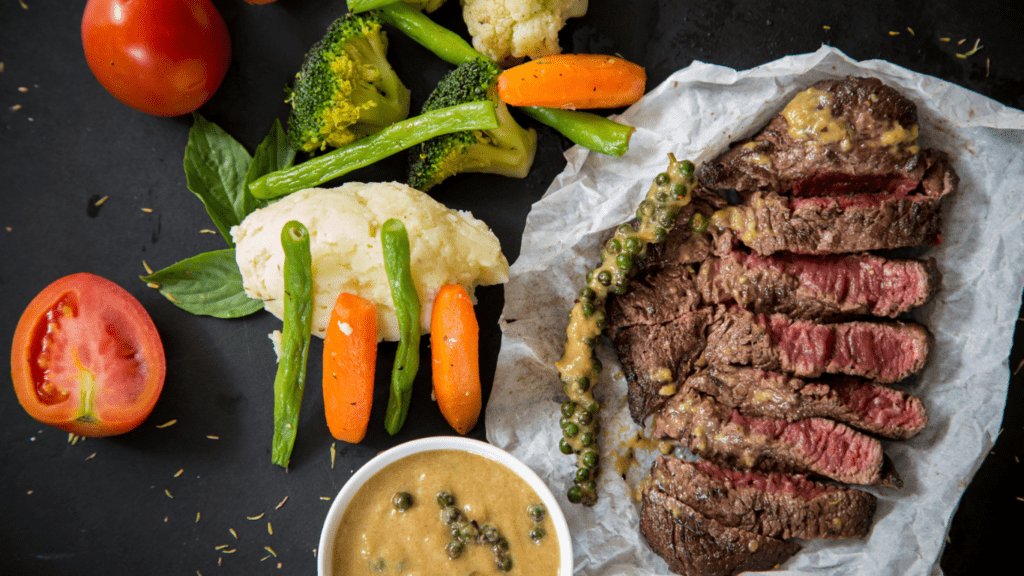Understanding Pre-Workout Nutrition
Fueling your body properly before a run ensures you have the energy and endurance needed to perform your best. The right combination of macronutrients and micronutrients can make a significant difference.
The Role of Macronutrients
Macronutrients—carbohydrates, proteins, and fats—play key roles in pre-workout nutrition.
- Carbohydrates are the primary energy source for runners. They break down into glucose, providing quick energy bursts.
- Complex carbs (whole grains, sweet potatoes) and simple carbs (fruits, honey) can be combined for balanced energy.
- Proteins are essential for muscle repair and growth.
- Consuming moderate amounts (yogurt, lean meats) before a run helps minimize muscle breakdown during exercise. Proteins also assist in faster recovery post-run.
- Fats offer a sustained energy source. Healthy fats (avocados, nuts) are slower to digest, providing endurance for longer runs.
- Balancing fats with carbs ensures a steady energy release.
The Importance of Micronutrients
Micronutrients—vitamins and minerals—are vital for overall health and athletic performance. Iron is crucial for oxygen transport in the blood. Foods rich in iron (spinach, red meat) can prevent fatigue and enhance stamina.
Electrolytes like sodium, potassium, and magnesium regulate muscle function and prevent cramps. Consuming electrolyte-rich foods (bananas, coconut water) before running maintains optimal hydration levels.
B vitamins, especially B6 and B12, support energy metabolism. These can be found in whole grains, eggs, and dairy products. Including them in your pre-workout meal boosts energy availability and efficiency.
Prioritizing both macronutrients and micronutrients in your pre-workout meals ensures you’re fueling your run most effectively.
Best Foods for Pre-Run Fueling

Selecting the right foods before a run is crucial. The right choices provide energy and endurance, making a significant difference in performance and recovery.
Carbohydrates for Energy
Carbohydrates act as the primary fuel source. They convert into glucose, which muscles use for energy. The best options include:
- Bananas: Packed with simple carbs and potassium, bananas help prevent muscle cramps.
- Oatmeal: Rich in complex carbs, oatmeal provides sustained energy.
- Whole Grain Bread: Contains fiber and essential nutrients, making it ideal for a pre-run snack.
- Berries: Provide antioxidants and quick energy.
- Greek Yogurt: High in protein and probiotics, it aids digestion and muscle recovery.
- Nuts: Contain healthy fats and protein, providing sustained energy and satiety.
- Eggs: Packed with protein and healthy fats, eggs support muscle repair and energy levels.
- Avocados: Rich in monounsaturated fats, they offer smooth energy release and support heart health.
Timing Your Pre-Workout Meals
Precise meal timing ensures optimal energy levels and digestion. The right strategy enhances performance and comfort.
Ideal Times to Eat Before Running
Eat larger meals 3-4 hours before running. This allows ample digestion and energy storage. Focus on balanced meals with carbohydrates like whole grains and proteins like lean meats.
Consume smaller snacks 30-60 minutes before running. These should be rich in easily digestible carbohydrates and minimal fats or fibers, which can cause discomfort. Examples include bananas, toast with honey, or energy bars.
What to Eat Just Before a Run
Opt for quick-digesting carbohydrates if eating within 15-30 minutes of running. This provides an immediate energy boost without causing digestive issues. Examples are a small banana, a few dates, or a half energy gel.
Avoid high-fat and high-fiber foods close to running. They slow digestion and may cause stomach cramps. Stick to light, simple carbs for best results.
Hydration Strategies
Hydration is crucial for optimal running performance. Adequate fluid intake prevents dehydration, reduces fatigue, and improves endurance.
How Much to Drink Before Running
The amount of fluid intake impacts your performance significantly. Drinking 16-20 ounces (about 0.5 liters) of water 2-3 hours before running helps maintain hydration levels.
Follow this up by consuming 8-10 ounces (0.25 liters) roughly 20-30 minutes before starting your run. Effective hydration supports thermoregulation and reduces the risk of muscle cramps.
Choosing the Right Fluids
Not all fluids are equal for hydration. Water remains the best choice for most runs under an hour. For longer runs or intense training sessions, sports drinks with electrolytes like sodium and potassium help replace sweat losses.
Avoid sugary beverages and caffeine close to running, as they can lead to dehydration. Selecting the right fluids enhances hydration and performance, ensuring you stay energized throughout your run.
Special Considerations
Running involves unique nutritional needs that can vary. Personalizing your pre-workout nutrition helps optimize performance.
Tailoring Nutrition for Different Distance Runs
Short runs (less than 60 minutes) may only require a light snack. Focus on easily digestible carbohydrates examples include a banana or a small energy bar. For medium runs (60-90 minutes), balance carbs and proteins.
Options like a peanut butter sandwich, yogurt with fruit, or oatmeal with berries can be optimal.
Long runs (over 90 minutes) demand more substantial fueling. Consume a complete meal with carbohydrates, proteins, and fats 3-4 hours before.
Choose whole grains, lean proteins like chicken or fish, and healthy fats examples include avocados and nuts. Supplement with a small snack 30-60 minutes pre-run, such as a banana or sports gel for sustained energy.
Adjusting Your Diet for Race Day
Preparation for race day starts days before the event. Increase carbohydrate intake with foods like pasta, rice, and potatoes for glycogen stores. Hydrate consistently with water, and sports drinks sparingly, to maintain electrolyte balance.
Race morning, eat a familiar meal 3-4 hours before the start. Avoid high-fiber or fatty foods to prevent gastrointestinal discomfort. Opt for simple, carbohydrate-rich options examples include a bagel with honey or a small bowl of cereal.
Adapt feeding based on start times. Early races may need lighter breakfasts, while later starts offer more flexibility. Always test new foods in training sessions to avoid adverse reactions on race day.



